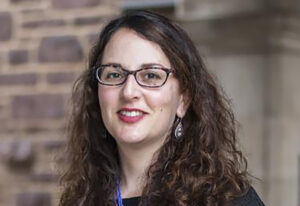 Jessica Rosenfeld, associate professor of English in Arts & Sciences
Jessica Rosenfeld, associate professor of English in Arts & Sciences
In recent months, mental health experts have been drawing attention to what they’ve dubbed “quarantine envy.”
Many people, they note, have been sizing up the extent to which they’ve been affected by lockdowns and economic hardship. Who still has a job? Who gets to work from home? Whose home is spacious, light-filled and Instagram-worthy?
The start of the school year adds another layer of comparison. Parents stuck in a small apartment with two kids forced to learn remotely might feel pangs about the fact that their friend’s kids get to attend a private school in person.
What should we do with these unpleasant feelings? Should we repress them or reason them away? Are they too shameful to be shared?
Envy is one of Christianity’s seven deadly sins – the worst of them all, says the Parson in Chaucer’s “Canterbury Tales.” But my research into the long history of envy shows that the emotion has many sides to it.
Read the full piece in The Conversation.
Comments and respectful dialogue are encouraged, but content will be moderated. Please, no personal attacks, obscenity or profanity, selling of commercial products, or endorsements of political candidates or positions. We reserve the right to remove any inappropriate comments. We also cannot address individual medical concerns or provide medical advice in this forum.